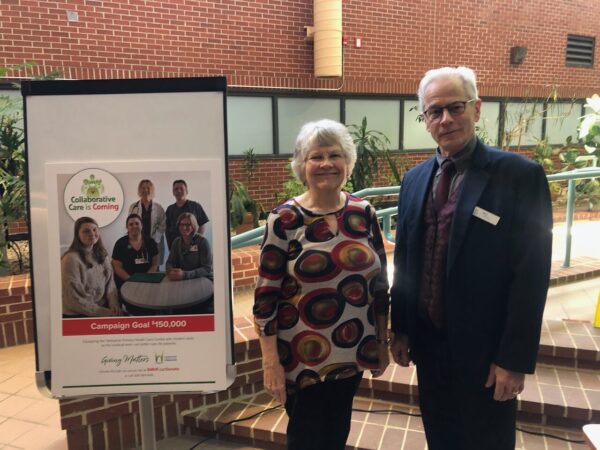
A potentially life saving measure that can reverse the effects of an opioid overdose could be harder to get in the region soon.
Ashley Legere offers training and free intranasal naloxone kits to groups, businesses, and anyone else interested in knowing how to administer this life saving treatment. Each training session comes with two free intranasal naloxone kits. But the problem is, her access to free kits is ending on March 31, 2024, with no extension in sight.
Health Canada’s Substance Use and Addictions Program (SUAP) has been providing funds to St. John Ambulance to run the Reaching Home program that provides training and intranasal naloxone to Legere and as well as many others across the country.
“It is of the utmost importance,” says Legere, because it can reverse the effects of an opioid overdose.
“Opioids are respiratory depressants,” she says. “The opiates in your system are depressing your respiratory system and Narcan [a brand name for naloxone] just goes in and enables you to breathe again.”
The opioid crisis is here in New Brunswick and in this area. The Department of Health says in the first half of 2023, there were 23 related opioid related deaths in this province, though it notes the data is still under review and is subject to change.
Through her work, first at Ensemble Moncton and now as Executive Director of the Cumberland Homelessness & Housing Support Association, Ashley Legere knows people who have died from overdoses.
“We’ve had multiple deaths in Sackville. We’ve had multiple deaths in Amherst,” says Legere, “from the toxic drug supply and toxic drug poisoning.”
According to Alanna Balint, program manager for the Reaching Home stream of St. John Ambulance’s national opioid programs, “in our program for New Brunswick, we’ve trained 3600 folks in responding to opioid poisonings, and we’ve distributed over 7000 kits in the community during our approximately four years of operations.” She says the program is in limbo without solid funding from Health Canada.
In an email, Health Canada says that 700 proposals for funding are being considered, and which will receive funding hasn’t been made public. Since 2017, it says it’s invested over $565 million and provided support to nearly 390 community-based projects focused on a range of substance use issues across the country.
The New Brunswick Department of Health distributes intramuscular naloxone kits free of charge to, “people who are at risk of an overdose, to family and friends, and to anyone who is most likely to witness and respond to an opioid overdose.” The province says it’s supplied about 8,900 take-home naloxone kits since October 2018.
According to Legere, the difference going forward will be the lack of access to intranasal naloxone, as opposed to intramuscular, which is administered via syringe. She said people can be hesitant to use a syringe if they aren’t used to working with them.
“The intranasal kit is just two nasal sprays that you put in the sinus cavity and then give it. So it is a much lower barrier. People are more willing to take the training and carry it,” said Legere.
The provincial Department of Health says it’s aware that the St. John Ambulance program is potentially ending – and that it is working with the agency to, “understand the potential gaps in services for New Brunswickers that may result from the end of federal funding and to identify ways to address them.”
In the meantime, Legere is stocking up on Saint John Ambulance’s free naloxone kits to distribute after the program potentially wraps up.
“They need to get rid of their inventory,” says Legere. “So I now currently have around 400 kits in my house.”
Legere will continue to give trainings and disperse these kits in the community as long as they last.
Anyone interested in receiving nasal naloxone training and the kits that come with it can contact Ashley Legere at sackvilleharmreduction@gmail.com.



















